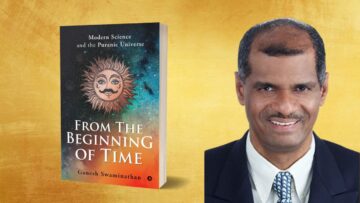Center for Indigenous Sustainability (CIS ) was launched in July 2020 with Rahul Goswami and Viva Kermani as advisors to the Center. CIS was formed, primarily, to apply the knowledge that we have inherited and thereby to bring about a transformation to sustainability that is both historically well-grounded and contemporary.
CIS identified the following three areas to focus its efforts on :
– Agro-ecological cultivation with no synthetic inputs
– Ayurveda including the maintenance of its botanical pharmacopeia
– The group of artisanal arts (handicrafts, hand weaves, and village household industry)
Given below is the annual report for the year gone by in the words of the advisors Rahul Goswami and Viva Kermani.
Overview
The first ‘year’ of the Centre for Indigenous Sustainability (we began in July 2020) has been a slow one, necessarily so as we explore what is meant as much by ‘sustainability’ and by ‘indigenous’, and what a centre for these concepts should attempt.
We do indeed have a road map for the first three years. That is the document which has guided our work till now. Based on this road map, which envisages activities and research until around end-2022, we have administered the group of short-term research fellows and their study subjects.
The majority of our first year’s short-term fellows have completed their inquiries and are preparing their reports. They have been informing us about their progress (or lack of it, especially during the times that movement restrictions were in force in a number of states) and we have advised them on their next steps to the best of our abilities.
It is they who have chosen the subjects, guided in doing so by their own experience and practice, and therefore our advice over the months of their fellowship has been of a general nature, supported by suggestions of a new or modified course of inquiry they could include. When their final fellowship reports come in – the first of these are due by the end of April 2021 – we will be better able to tell whether the Centre’s approach to guidance has paid off, or not.
This has a bearing upon the planned work of the Centre from year two, that is, from the second quarter of 2021 which we have entered. The Centre should begin instruction and training, and the collective work of the fellows has helped us find areas of field-based training, as indeed they were intended to do.
Our successes have been few and modest. In the circumstances India found itself from March 2020 and which continue even today, this could not have been otherwise. Had there been fewer restrictions, easier transport, direct access to knowledge sources and individuals, the fellows would undoubtedly have had more material collected and more to work with for their subjects.
Even so, that would not have made for bigger and better successes because that was not and is not an objective of the Centre. We are interested in understanding the landscapes of ‘sustainability’ in the many different sub-regions of India and understanding the ‘indigenous’ viewpoint and approaches of the practitioners of sustainability, where they are in the regions that we have surveyed.
Separate from the short term fellowships, the Centre has also pursued possible partnerships and alliances with like-minded organisations. We have only a short list of such organisations (not a long list!) and we have looked for them based on their activity in our three thematic ‘pillar’ areas: food and agriculture in the form of traditional cultivation practices, health and medicine with a focus on ayurveda, handicrafts with hand weaves and rural household artisanal industry.
Programmes
Our main programme since June 2020 has been the short-term fellowships. This is now winding up with seven of the 11 fellows concluding their work. In addition, the Centre has begun a promising programme that occupied parts of both our agriculture and health ‘pillar’ areas, and that is the subject of Vrikshayurveda. We have also completed the compilation of the indigenous environmentalism workshop that was held in May 2020 (and was an event that catalysed the formation of the Centre).
a) Here are very brief sketches of the Centre’s short term fellows:
Nagendra Kumar Jain (Assam). Study: ‘Yoga and Sustainable Healthcare’ – “The cost of health care growing and health care is increasingly going beyond the reach of common people, the economically and socially vulnerable section. The promise of yoga, nutrition, ayurveda and health education.”
Rachna Bhangaonkar and Anushree Gokhale (Gujarat). Study: ‘Anna He Poorna Brahma, Sustainability in Traditional Food Ways and Eating Practices’ – “We examine how socio-political systems impacted food habits in earlier decades, the shift from ‘pangat’ to buffet dining practices and its influence on food consumption and wastage are explored, with case studies of various food businesses and ‘gruh-udyog’.”
Vaidya Bhavana K R (Karnataka). Study: ‘Organisations aimed at Conservation of Non-GE Seeds in Karnataka’ – “The traditional seeds are identified with their ayurvedic names and their medicinal properties are documented.”
Shagufa Kapadia (Gujarat). Study: ‘Interface between Indic Socio-religious Rituals and Vegetarianism’ – “The research focuses on socio-religious rituals and practices that integrate the notion and practice of vegetarianism, and how these influence people’s food habits, both implicitly and explicitly.”
Nishanth Gurav (Chhattisgarh). Study: ‘Ethnic food practices of Gond tribes’ – “How important is the role of local deities in conserving local crop varieties? Etymological studies for the names of local varieties, why are they named the way they are named? Is there a need to validate the role of ethnic perspectives in conservation?”
Shalini Mahapatra (Odisha). Study: ‘The Food Offerings at the Jagannath temple in Puri: Mahaprasad’ – “The Mahaprasada of Shri Jagannath is one of the oldest cuisine cultures of the world. At night the trinity is served 56 kinds of food items also known as ‘Chhappan Bhogo’ (56 Divine food offerings).”
Vaidya Chandramouleeswaran (Tamil Nadu). Study: ‘Difficulties and challenges faced by herbal manufacturers of India in procuring and usage of herbal raw materials’ – “More emphasis should be given to organic farming so that good-quality material can be produced. Initiative must be taken for cultivating some of the herbs predominantly used for herbal medicines.”
Nithin Kumar Namasivayam (Tamil Nadu). Study: ‘Documentation of weaving tradition in Orakartpettai village, Tamil Nadu’ – “The lungi hand weaving and paddy farming has been the ancient tradition and source of livelihood for people of Orakartpettai. Due to external factors, many families has moved away from this tradition and few have migrated to towns”.
Kamini Gogri (Maharashtra). Study: ‘Exploring sacred spaces between food cultivation and naivedya and prasad’ – “The once fertile land which became barren, led to far-reaching effects along with the ways of worships. Worship continued keeping the identity of people intact. From Rajasthan to Kutch to cities like Mumbai, the process of participation become more indirect in term of offerings.”
Vinay Prashant (Karnataka). Study: ‘Craft utility products, the terracotta amplifier’ – “There is a small potter community/family in every village. If we are able to infuse design in traditional pottery and create a utility product that appeals to the younger generation and the affluent urban populace, then it can support livelihoods by the thousands.”
Sushant Bharti (Uttar Pradesh). Study: ‘Prasadam Tradition of Vrindavan’ – “The study and research is being done to document the ongoing prasadam traditions around various temples in Braj. The list of the daily food items which are being offered to specific important temples in braj is based on the archival data and interviews. There is a tradition of Braj bhasha poetry attached with the prasadam tradition.”
b) Compilation of the two-day conference on indigenous environmentalism
This was a sprawling gathering, and its nature is best summed up by a description taken from the critical compilation of the presentation of panelists: “Starting with the concept of dharma and how it lies at the core of ecological awareness, and environmental nurture among its practitioners, such as Buddhists, Hindus, Jains, and Sikhs, to understanding how this core ideology differs from Abrahamic faiths in their proclamation of dominion of man over all earth… The presence of environmental sensitivity in scriptural as well as literary texts, in daily worship, and in celebratory festivities, is proof enough of the widespread practice of these sustainable ideals.”
This is not a ‘proceedings’ publication in the usual sense that is pursued post-conference. These tend most often to be nothing more than an aggregation of papers, with a desultory introduction and a couple of dull overviews. When published, they burden the already overfull shelves of academics and one or two of their contents may be cited in another paper here and there. Such compilations stay at the level of abstracted discourse.
In complete contrast our compiler, Kavita Krishna, set about asking the panelists for written versions of their presentations, then invested hours of listening to their recorded sessions, then further asked panelists to respond to questions, and thereafter combined the different materials. The results are not left to be standalone presented subjects but are linked to broad themes and linkages, that form a superstructure for what qualifies as a manual on Indic environmentalism.
c) Vrkshayurveda sourcebook
We are indeed very pleased that the Centre has formed a partnership with the Centre for Indian Knowledge Systems (based in Chennai) in order to compile and publish a sourcebook on Vrkshayurveda. CIKS is one of the few organisations in India that has put a great effort into the preservation of local rice varieties, and the support of the knowledge that has made their continued cultivation possible. Theirs is a record of over 30 years.
CIKS has, alongside rice, also documented Vrkshayurveda practices. The sourcebook will:
- Provide a general introduction to a topic that is scarcely known.
- Include an overview of the source material for Vrkshayurveda.
- Describe several research efforts that have been active in recent years towards the testing and validation of principles and practices of Vrkshayurveda by various individuals, institutions and researchers.
- Discuss the current relevance and future potential of Vrkshayurveda to our agricultural practices.
The Vrkshayurveda sourcebook will also be designed to support an educational and training module and provide pedagogical course material for Indic Academy.
Next steps
Two near-term questions loom before us. Should there be a reprise of the indigenous environmentalism conference, one that will bring in practitioners and subject matter experts whose work and views are relatively unknown? Should there be a second annual short term fellowship programme that expands the research landscape of our three ‘pillar’ themes?
Both should be answered before long. Our advice is that the second year objective for the Centre – get closer to indigenous sustainability practice and activity where it is found and support it – is feasible, despite the great upheavals caused by the ‘lock down’ restrictions and disruption to, especially, small-scale economies. In a way, it is this disruption that has given our work a keener edge, in all our three dimensions.
We are as always thankful to the entire team for fully enabling the work of the Centre for Indigenous Sustainability and, more especially, for the atmosphere of freedom and trust in which our work has been able to proceed.
Advisers to the Centre,
Rahul Goswami Viva Kermani
Note on Image : We have once again chosen a work by Andy Goldsworthy, an extraordinary sculptor and environmentalist as our featured image.






